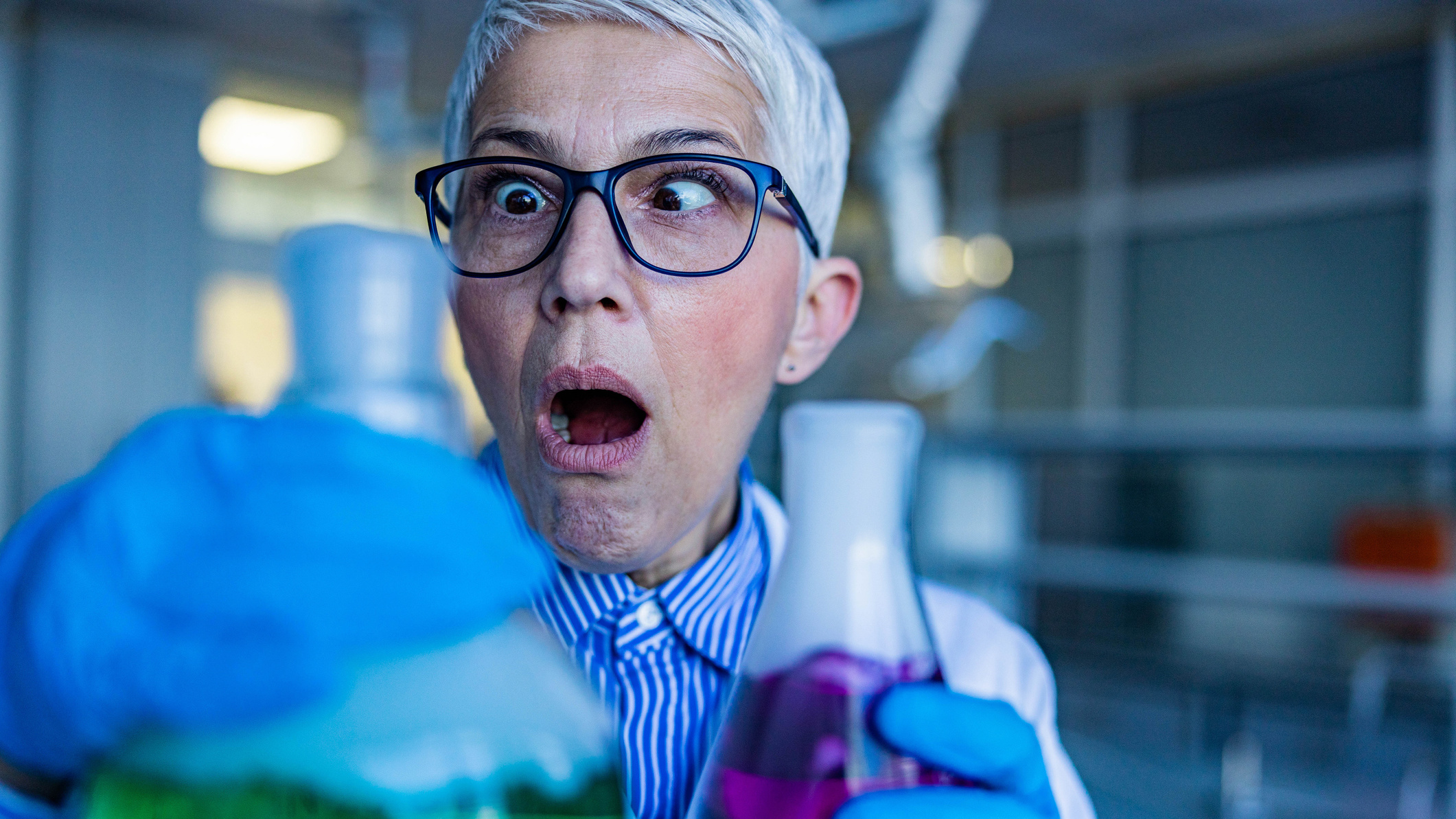ScoPo’s (actually Wilkie’s) Powerplays: Health stocks rise as AdAlta soars 17% on trial results

Pic: Getty Images
- ASX health sector rises in line with broader markets in the past five days
- AdAlta reports positive Phase 1 extension trial results of AD-214 into IPF
- Mach7 signs $3.1 million, three-year renewal contract with Penn State Health
Morgans healthcare and life sciences expert Iain Wilkie is filling in for his colleague Scott Power to explain what the movers and shakers have been doing in health and gives his ASX Powerplay.
Do you enjoy a cup of coffee? Scientists from Imperial College London in the UK and the University of Copenhagen in Denmark have discovered that prolonged exposure to elevated caffeine levels in the bloodstream may offer protective benefits against joint diseases and obesity.
Published in the BMC Medicine journal, the researchers developed a genetic risk score (GRS) for plasma caffeine using two genetic variants independently linked to plasma caffeine levels.
Subsequently, a phenome-wide association study was conducted, encompassing 988 clinical traits documented in the UK Biobank that are associated with circulating caffeine levels.
A Mendelian randomisation analysis was then undertaken to determine the potential mechanisms underlying the impact of plasma caffeine on both previously identified and newly discovered traits.
In addition, genetic data for plasma caffeine were derived from past genome-wide association studies involving ~9,900 people, predominantly Europeans aged between 47 and 71. Genetic information for osteoarthrosis, osteoarthritis, and body mass index details was also obtained.
The study found long-term circulating caffeine levels could potentially contribute to reduced body weight and a decreased likelihood of developing osteoarthrosis and osteoarthritis.
The researchers also validated previous genetic findings supporting the notion that plasma caffeine has a protective influence on an individual’s risk of obesity.
“Further clinical study is warranted to understand the translational relevance of these findings before clinical practice or lifestyle interventions related to caffeine consumption are introduced,” the study says.
To markets…
And ASX health stocks are looking somewhat energised like they’ve had a morning coffee this week. At around 12.30pm (AEST) on Friday the S&P/ASX 200 healthcare index (ASX:XHJ) was up 1.2% for the past five days, while benchmark S&P/ASX 200 (ASX:XJO) was up just 1.08% for the same period.
With reporting season now concluded Wilkie says it was a “bit more wild toward the end” but generally he sees investor sentiment up particularly in the small cap end of the sector.
“Larger cap healthcare was moving around a bit but I’m certainly getting the sense smallcap healthcare is really getting back into the swing of things with plenty of optimism ahead right now,” Wilkie says.
AdAlta up 17% after positive Phase 1 extension study results
AdAlta (ASX:1AD) is up 17.4% in the past five days after Phase 1 extension study of AD-214 confirmed the safety, tolerability, and effectiveness of the planned Phase 2 dose of lead asset AD-214 into Idiopathic Pulmonary Fibrosis (IPF).
Results showed it was well tolerated at the intended Phase 2 dose. The drug’s availability and interaction with its target receptor were consistent across all doses, boosting confidence in its efficacy.
One key concern addressed was the potential development of antidrug antibodies (ADAs) against AD-214, which could reduce its effectiveness over time.
“However, the study found that while ADAs were present in all participants, they didn’t affect the drug’s performance or safety, reassuring stakeholders about its long-term efficacy,” Wilkie says.
“The study’s positive outcomes have positioned AD-214 for Phase 2 trials, marking a significant milestone for AdAlta.”
He says 1AD is now looking to secure partnerships or financing to advance to the next stage of clinical development.
“The company has flagged for some time that several potential partners were waiting to evaluate these results, and clearly optimistic about potential collaborations moving forward,” he says.
“It should be an interesting few months ahead.
“1AD have clearly flagged this event for a while now and given the potential deal sizes for these types of assets set against its market cap of $15m a little can do a lot here.”
Mach 7 confirms contact renewal
Health imaging stock Mach7 Technologies (ASX:M7T) has announced a contract renewal with Penn State Health in the US for three more years with a total contract value of $3.1m for its or its Enterprise Imaging Platform, marking the second renewal since its original signing in 2016.
Penn State Health is an academic medical centre in central Pennsylvania. Wilkie says the latest renewal includes expanded licensing for increased study volumes and additional sites, effectively doubling the study volumes over the contract’s lifespan.
The contract involves a capital software licence fee of $1.1 million, to be recognised as revenue in Q3 FY24, along with maintenance and support fees totaling $2 million over the contract term.
“While not a major announcement, it underscores M7T’s strong customer relationships and high retention rates,” Wilkie says.
“Despite the industry trend favouring subscription contracts, M7T accommodates both models, with management anticipating continued dominance of subscription models in future RFPs and tender proposals.
“Mach7 remains one of our keys picks in the healthcare technology space.”
The M7T share price is flat for the past five days. Morgans has an add rating and $1.56 12-month target price on M7T.
The 1AD & M7T share price today:
Wilkie’s Powerplay – PharmAust reports positive trial results
PharmAust (ASX:PAA) is Wilkie’s stock of the week with the company recently announcing promising topline results from its Phase 1 MEND study of its lead product monepantel (MPL) in patients with Motor Neurone Disease/Amyotrophic Lateral Sclerosis (MND/ALS).
The PAA share price is up more than 150% YTD and 250% in the past year but down ~7% this week after what Wilkie sees as some profit taking following a strong run.
“Share price has been pretty wild – my take is that it’s had a solid run for most of the year and there are plenty of holders who felt it was time to take some profits off the table and potentially exercise the options,” Wilkie says.
“We’ve seen a few notices go through for conversion so good for the company to get these through early but it’s taken the shine off the result.
“I think once this washes through – should start heading higher again.”
MND/ALS is an invariably fatal nervous system disease that weakens muscles and impacts physical function – affecting more than 350,000 people globally.
The Phase 1 results showed a good safety profile with no serious treatment-related adverse events with 100% of patients surviving and retaining the ability to swallow, opting for the extension phase of the trial.
Furthermore, the high dose showed slowing of disease progression by up to 58% based on ALS functional rating scale (ALSFRS) with claimed potential to prolong patient life expectancy by 13.5-56.5 months.
Wilkie says there are some disclaimers with the open label Phase 1 study including only 12 patients with lack of baseline disease progression for comparison to natural history controls.
“This will come in time though but I’m keen to see this detail,” he says.
Wilkie says the MND/ALS market has a couple of competitors already with Relyvrio showing a 25% decline in ALSFRS and 8-9 month survival benefit. Relyvrio has FDA accelerated approval following a Phase 2 trial and is currently in Phase 3 with readout expected sometime this half.
He says Radicava showed 33% ALSFRS decline but no survival benefit with both drugs priced ~US$150k per year.
Wilkie says comparing head-to-head performance based on the studies is important.
PAA’s MPL has a 58% ALSFRS decline in high dose and 23% decline in low dose with mean of study 39% decline and 1-4 year survival extension (inferred).
Relyvrio has a 25% ALSFRS decline and 8-9 month survival benefit, while Radicava has 33% ALSFRS decline with no survival benefit.
Wilkie says the drugs differ in adverse event persistence rates. Radicava had ~80% persistence at one year, Relyvrio 68% initially, now 46% after 1.5 years on market and PAA 100% persistence to date at 12+ months.
The MND/ALS market is estimated at around $1bn per annum in the US. PAA is now planning an adaptive Phase 2/3 trial in the US targeted for mid-year at an estimated cost of $20-30 million for 210 patients.
“Phase 1 results were good, gave some decent insight into MPL’s potential efficacy with good chance for various forms of accelerated review/designations, and a highly lucrative market.
“It seems like a very partnerable asset.”
The PAA share price today:
The views, information, or opinions expressed in the interview in this article are solely those of the interviewee and do not represent the views of Stockhead. Stockhead has not provided, endorsed or otherwise assumed responsibility for any financial product advice contained in this article.
At Stockhead, we tell it like it is. Although PharmAust is a Stockhead advertisers, they did not sponsor this article.
Disclosure: The author held shares in Mach 7 at the time of writing this article.
Related Topics

UNLOCK INSIGHTS
Discover the untold stories of emerging ASX stocks.
Daily news and expert analysis, it's free to subscribe.
By proceeding, you confirm you understand that we handle personal information in accordance with our Privacy Policy.








